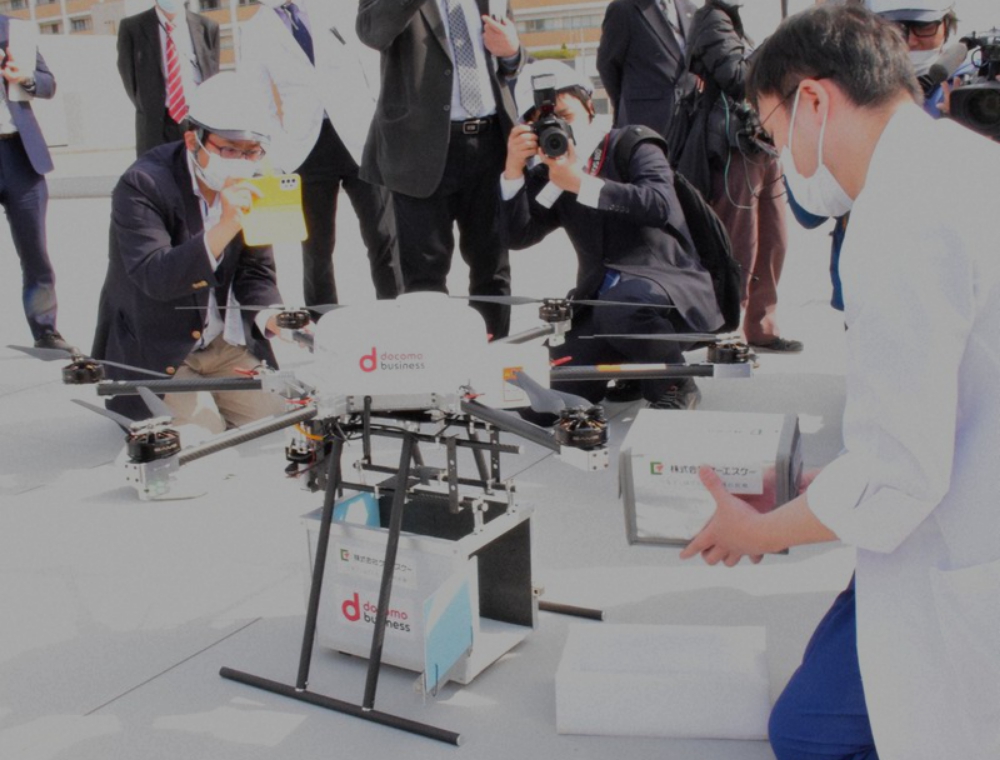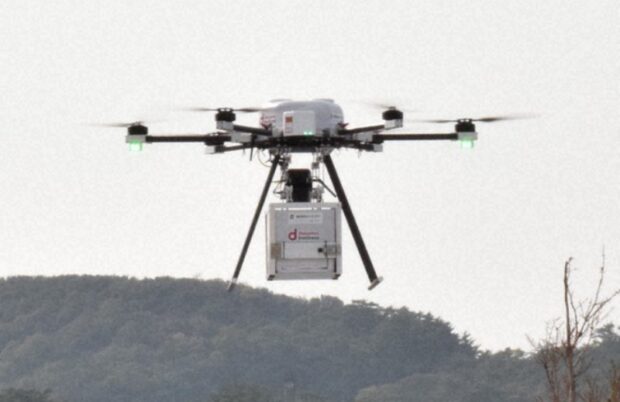In a prefectural first, a live demonstration of the delivery of medical supplies via a drone was recently staged at a university in this west Japan city, looking to take advantage of Japan’s updated laws allowing civilians to conduct autonomous flights over urban areas.
In December 2022, Japan revised its Civil Aeronautics Act, allowing for “Level 4” flights, or the remote piloting of drones beyond operators’ line of sight over populated areas.
The project was the initiative of KSK Co., a medical devices and pharmaceuticals wholesale company based in the city of Osaka. The company heard from others in the industry about being unable to deliver medical supplies to facilities at the scene in the wake of disasters such as 1995’s Great Hanshin Earthquake and the Great East Japan Earthquake in 2011.
This led them to consider the use of drones, aiming to create a system in which medicines can be delivered when streets are disrupted by large-scale disasters. The company moved forward with drones provided by Tokyo’s NTT Communications Corp. and advice on medical matters from Wakayama Medical University.

An official receives medical supplies from a drone after his identity is verified through facial recognition at Wakayama Medical University, in the city of Wakayama on March 30, 2023. (Mainichi/Atsuhisa Kato)
In the test flight on March 30, the drone was tasked with carrying medicines that need to be temperature-regulated. The drone took off from Wakagawa Kasen Park’s tennis courts, about 1.5 kilometers away from Wakayama Medical University, with the medicines inside a cold-storage box. Utilizing Level 2 flight, in which the drone flies autonomously within the operator’s line of sight, the machine landed on top of the university’s library building about 20 minutes later. After an official’s identity was verified using its facial-recognition camera, the drone released the medicines.
Vibration and other data from this flight will be analyzed to identify challenges ahead. In subsequent experiments, researchers plan to move up to other flight levels, including by flying over populated areas.
Hiroshi Hiratani, head of logistics strategy at KSK, said after the experiment,
“We’ve proven that drones can properly make deliveries,” adding his hopes that Level 4 flights will take place around 2025.
Masami Ueno, adviser to the president at Wakayama Medical University, said that he hopes drones will be useful in normal times, not just during disasters, for community health care such as by delivering medicines to the elderly living alone or in mountainous locations.
Top Photo: A drone is seen carrying a box of medical supplies at Wakayama Medical University in the city of Wakayama on March 30, 2023. (Mainichi/Atsuhisa Kato)
Source: The Mainichi

